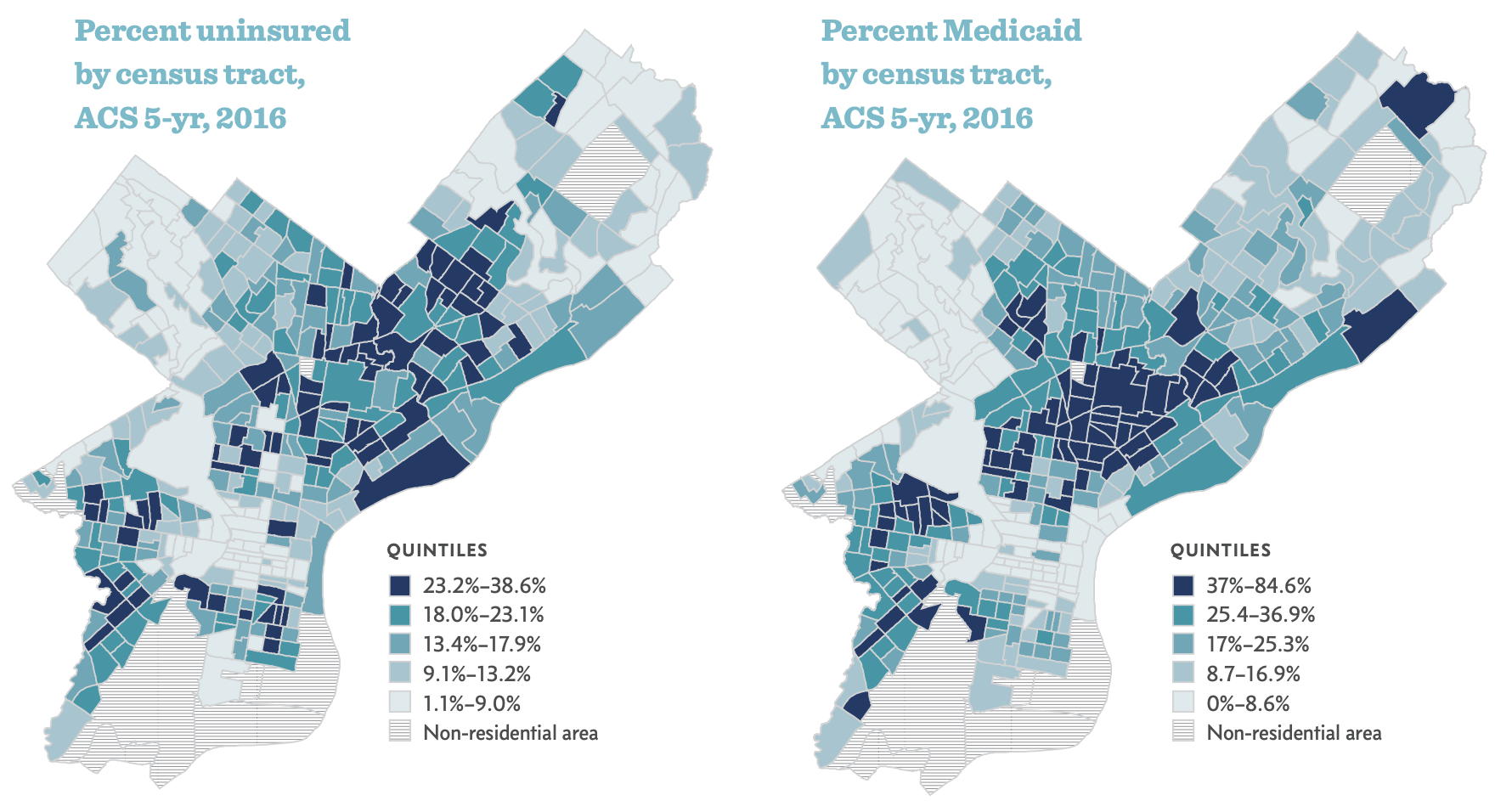Select Key Metrics on Access to Specialty Care
Transportation wait times; clinic wait times (e.g., emergency department, HIV care, oncology, etc.); insurance approval of specialty services.
 Specialty Care Access
Specialty Care Access
Rate of referral to specialists; specialist workforce availability by neighborhood; telemedicine services use; costs of specialty services.
Background
Several areas in Philadelphia have significantly higher rates of individuals without insurance. Many of these same areas have high rates of Medicaid enrollment and are home to predominantly Black or Hispanic Philadelphians and households with lower incomes.

Source: Staying Healthy - Access to Primary Care in Philadelphia, City of Philadelphia Department of Public Health | Data Source: American Community Survey, U.S. Census Bureau
Ongoing Efforts in the Philadelphia Community
Temple is centralizing access to specialty care, consults, and outpatient appointments.
More than 85% of the patients served by Temple University Hospital are covered by government-based insurance programs including Medicare and Medicaid. In the face of the COVID-19 pandemic and with a significant need to maintain necessary access to care for their patient population, Temple reformatted their telemedicine remote monitoring platform using funds from an FCC grant to incorporate symptom diagnosis software, tablets, phones, and other telecommunications equipment to diagnose and treat patients who needed a consultation for specialty services or outpatient appointments. The program has resulted in increases in appointment adherence and overall patient experience.
Efforts listed here may be independent of Accelerate Health Equity. Check back to learn about a broader list of health equity efforts.
